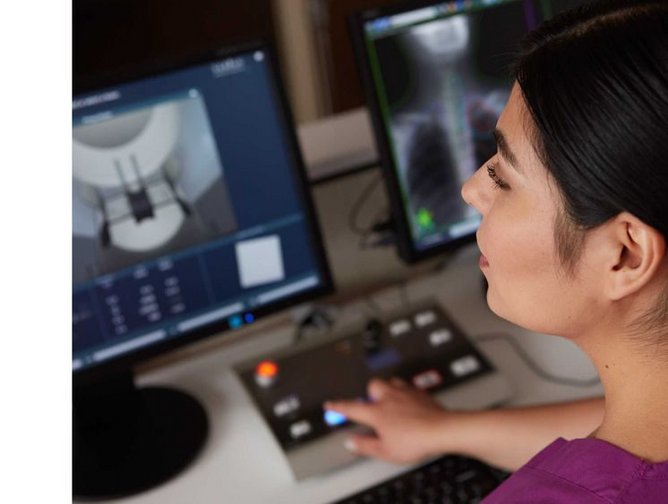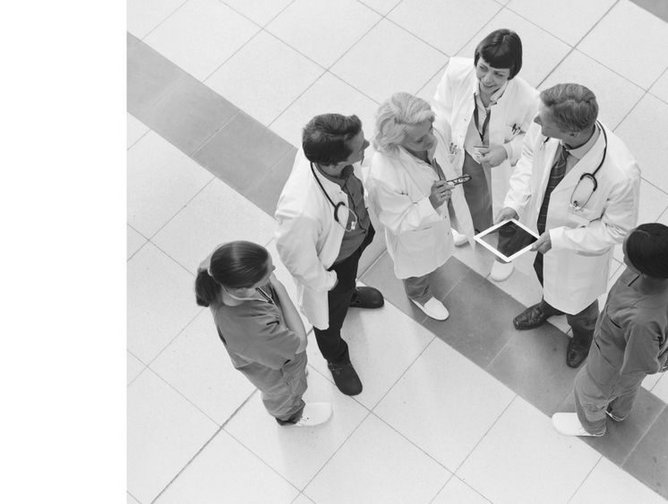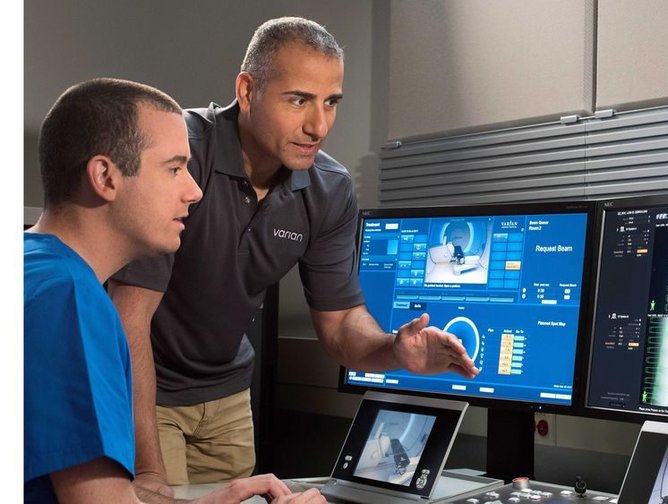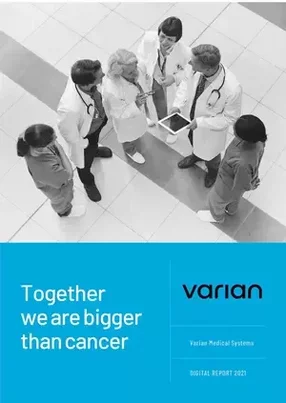Varian Medical Systems: Together we are bigger than cancer
Healthcare has always been Kenneth Tan's calling. Having studied biotechnology, he worked in the pharmaceutical and medical device sectors before moving into oncology, a field that is particularly important to him since losing his mother to cancer in 2002.
He describes her journey through cancer treatment as filled with uncertainties and fear both for her and for Kenneth and his family. As a result, when he had an opportunity to join Varian Medical Systems, their vision for creating a world without fear of cancer particularly resonated. "I immediately wanted to be part of this fight to beat cancer" he says. "It's such a clear and simple vision”.
"In the future, I believe the approach we take with many types of cancer will be the same approach we take with any chronic illness nowadays - screen early, diagnose early, and treat early so patients can continue to live a high quality of life. We believe that's possible, and with that possibility the fear disappears because from the patient and family's point of view, there will be treatment options available that improve survivability."
Indeed, some experts predict that by 2050 cancer will be a manageable chronic disease just like diabetes and hypertension so that a cancer diagnosis will no longer hold the fear it does today. Additionally, treatment is becoming more sophisticated thanks to rapidly advancing technology. "Cancer care is becoming more “intelligent” with the use of biomarkers, personalized drugs, precision radiotherapy and proton therapy, and targeted immunotherapy" Kenneth says.
An example of this is Adaptive Intelligence™, which combines artificial intelligence and adaptive radiotherapy. Adaptive therapy creates a personalized treatment strategy guided by details about the patient’s internal anatomy and treatment response.
This AI-driven adaptive therapy solution can deliver an entire adapted treatment to the targeted tumour within a 15-minute timeslot, reducing the dosage of radiation to healthy tissue. AI-adapted plans have shown to be better than conventional scheduled plans.
"Our advanced radiotherapy technologies can make treatments more efficient and shorter, benefitting both clinicians and patients” Kenneth says. "Both our hardware and software ecosystems enable clinicians to plan treatment remotely – this has been particularly valuable over the past year due to COVID-19 where in-person consultations and treatment has been restricted.
"By the adoption of big data and artificial intelligence, we will be able to deliver better outcomes for cancer patients. We are using software and automated processes to help oncology professionals globally collaborate and develop more precise and personalized cancer treatments, making cancer care easier to manage and deliver."
This is how Varian envisions Intelligent Cancer Care (ICC), which combines people, data, and technology to deliver bespoke patient care. "With ICC, we will have the ability to integrate all our software and patient insights in the cloud so that caregivers anywhere in the world can access the latest information and deliver more accurate treatments. Our technology platforms bring different teams together, from surgical, medical, radiation and interventional oncology, resulting in a team approach that offers the best care for each patient."
Intelligent Cancer Care enables a truly multidisciplinary approach to treating cancer, which is one of the most complex diseases to manage. "All too often, the care that a patient receives is determined by the first point of interaction with the health system after being diagnosed with cancer," Kenneth says. "Specialists working together can use the latest clinical evidence to determine the best course of treatment for the patient. We are already seeing how the accelerated adoption of software systems and solutions are helping us move away from fragmented care and enabling treatment centres, research institutions and practices to work together to provide more integrated, multidisciplinary cancer care."
Another key aspect of Intelligent Cancer Care is ensuring that patients are active participants in sharing information and making treatment decisions. By sharing their information, not only will they benefit themselves, but they will also contribute to better clinical outcomes for other cancer patients.” Kenneth says.
"In the future, we will see a proliferation of patient tools that allow them to become more active and engaged members of the care team. These digital tools will enable more remotecare, also known as ambulatory care, and less in-patient care. A recent McKinsey article highlighted that ambulatory care is often perceived as more intimate than in- hospital care, giving patients a greater sense of personalized care and contact with their care team. Perhaps most persuasively, costs to both patients and payers can be significantly less in ambulatory care."
Kenneth says the biggest advances in cancer treatment are around early diagnosis, for which technology is a crucial enabler. "The potential impact of early diagnosis will have on treatment outcomes and survival will be transformative. Artificial intelligence and machine learning have both been shown to improve the early detection of cancer by more accurately identifying at-risk patients, improving diagnostic test sensitivity and specificity, accelerating our ability to screen and risk-stratify patient populations, improving treatment planning and predicting treatment outcomes.
"Over the past decade we have also witnessed an explosion in big data, particularly in our ability to collect and analyze vast amounts of data points. Our success in turning that data into useful decision support tools for physicians and patients will determine the degree to which we can transform cancer care over the next 30 years."
“At Varian, we aim to lead the way in integrated, multidisciplinary cancer care. Intelligent Cancer Care will democratize personalized care, augment and amplify the clinical caregiver and empower the patient as a stakeholder in his or her care” Kenneth concluded.



- Kenneth Tan

